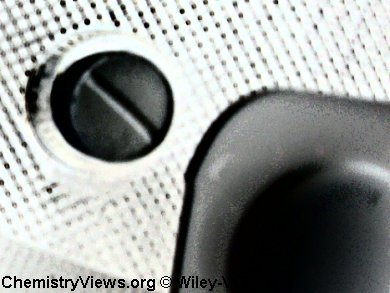Bacterial replication depends on a protein known as sliding clump (SC). This molecule binds to the bacterial DNA polymerase, an enzyme that synthesizes DNA, thereby ensuring it functions correctly. Although several SC inhibitors have been developed, none of them can be used therapeutically yet.
Aaron J. Oakley, University of Wollongong, Australia, and colleagues discovered that some nonsteroidal anti-inflammatory drugs (NSAIDs) act as SC inhibitors. The researches demonstrated that NSAIDs, such as carprofen, bromfenac, and vedaprofen, bind to sliding clump at a common binding site (subsite I). As this domain allows SC to interact with the DNA polymerase, carprofen, bromfenac, and vedaprofen block the replication of bacterial DNA, albeit to a lesser extent than standard antibiotics.
By providing novel insights into the interactions between NSAIDS and sliding clump, this study opens the way to the development of more potent SC inhibitors and, potentially, to a novel class of antibiotics.
- DNA Replication Is the Target for the Antibacterial Effects of Nonsteroidal Anti-Inflammatory Drugs,
Zhou Yin, Yao Wang, Louise R. Whittell, Slobodan Jergic, Michael Liu, Elizabeth Harry, Nicholas E. Dixon, Michael J. Kelso, Jennifer L. Beck, Aaron J. Oakley,
Chem. Biol. 2014.
DOI: 10.1016/j.chembiol.2014.02.009




